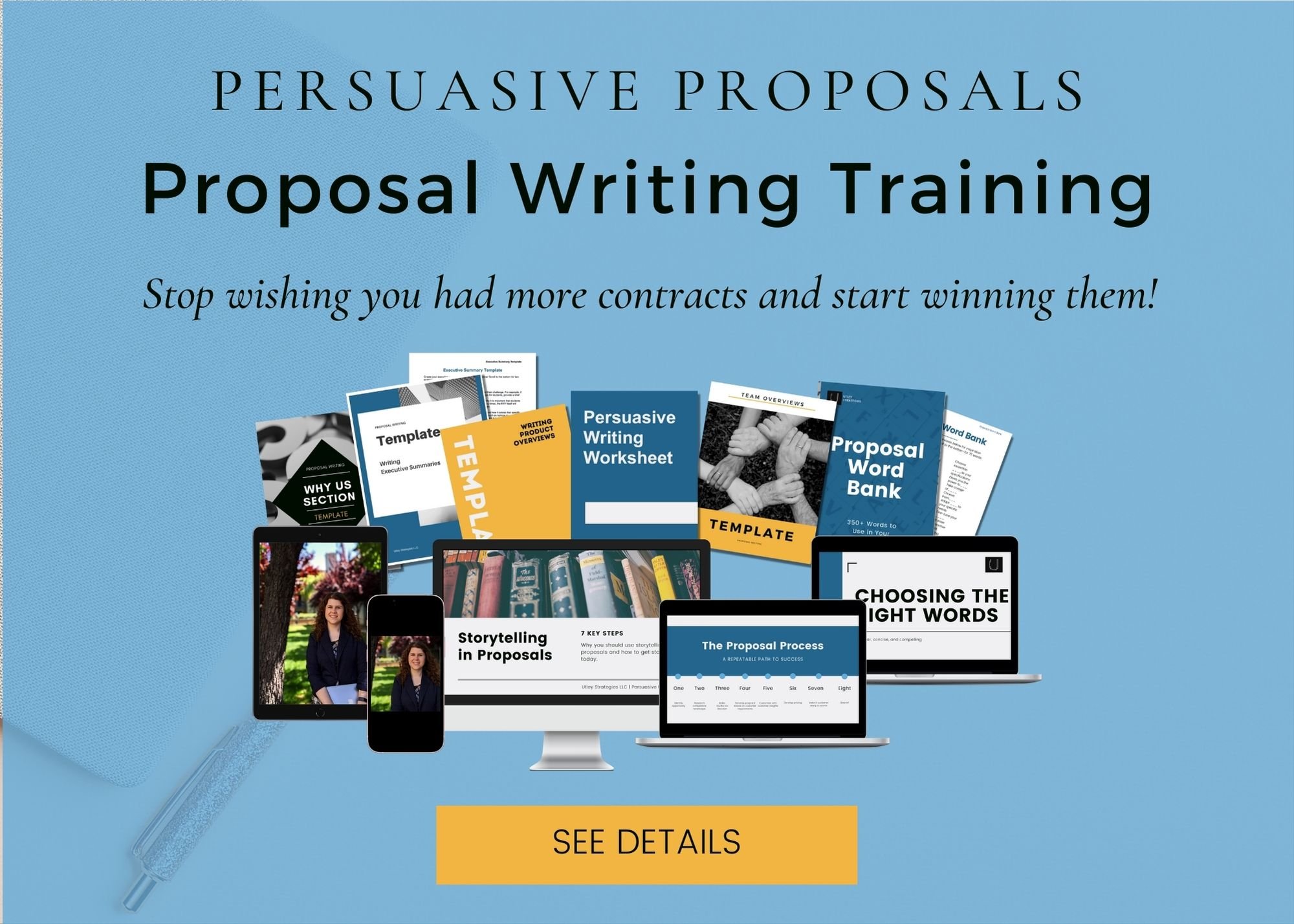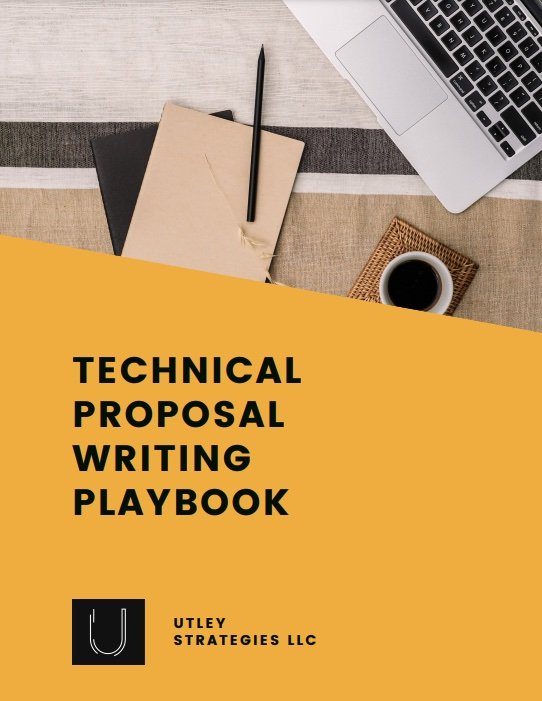How to Choose the Right Proposal Support
Unless you are a proposal writer, your main skillset isn’t likely in creating proposals. Because of this, it can sometimes be a good idea to bring in proposal help to make sure your potential clients receive your best possible proposal. In this post, we look at a few example scenarios of when you might need help and the types of support that would be a best fit.
Let’s dive in!
If you have never created a proposal before…
If you fall into this category, then congratulations! You most likely are either just starting your business or expanding into a new area. There are two main areas of proposal support that will help you at this stage: DIY and hiring a proposal expert.
DIY
This is the most economical option and will set you up for long-term success creating your own proposals in the future. If you prefer to start out doing it on your own, then resources such as blog posts, books, and even trainings can help you to create your best proposal. Look for topics focused on sales writing, proposal format, designing sales documents (ideally proposals), and business development.
Hiring a Proposal Expert
Hiring a proposal expert for your first proposal can help you create a tailored and professional looking document for your potential new customer. Make sure you find someone who knows how to create tailored content with a focus on sales writing. It may be tempting to work with any writer, but a proposal expert will produce the best results.
Proposal design isn’t always included. If this is an area where you need help, make sure you ask up front if that is included.
If you know you will be sending out similar proposals in the future, then working with an expert to create a proposal template can save you time and energy in the long run.
If you are responding to your first RFP…
Responding to RFPs can be overwhelming and confusing, especially the first time. Similar to the above, there are two main ways you can find proposal support to help you respond to your first RFP: RFP response training or hiring support.
RFP Response Training
RFP response training may come in the form of books, a live training session, or an online course. One key thing to watch for when finding RFP response trainings is the industry. Some trainings focus solely on federal or government opportunities. While this is helpful if that’s your area, it will be disappointing if it’s not.
Key topics any RFP training should cover include: reading the RFP, outlining your response, creating content, designing your proposal, and formatting for submission. If these areas aren’t covered, you will still have questions after the training.
Hiring Support
Your first RFP response is a great time to work with a proposal expert as they can help you to navigate the requirements, create content, and design your response. One thing to keep in mind is that RFPs are often very competitive, and it can be hard to win if you haven’t met with the customer before the RFP is released. Because of this, be wary of any proposal support that guarantees a win. There most likely is a catch.
If you respond to RFPs infrequently…
In this scenario, it is best to work with a proposal expert when you do have an RFP to ensure you are creating your best response. Infrequently means about once a quarter (for any more frequently, see below). When you do have an RFP that seems like a good fit, the proposal expert can help you to figure out how to compete and how to present that information in your response while remaining compliant.
If you respond to RFPs frequently…
For teams that respond to RFPs often, updating your content library is a key way to improve your process as well as your proposals. Here you can work with a proposal expert to create customizable boilerplate content that speaks to your customers. Ideally, whomever you work with will also help update your template design to make it easy to use and visually appealing to the reader.
If your sales team typically sends proposals but there’s a big opportunity…
Your sales team can handle most proposals on their own, but if a large proposal comes through, it may be time to bring in an outside expert. In this scenario, following a proven proposal process, such as the Shipley process, can help you to create a truly competitive proposal.
If you send out bids, quotes, and other types of proposals...
For these types of proposals, investing in a proposal software that you can easily update will save you time and energy. Since these typically aren’t in response to complex RFPs, you can use your own standard template and update it for each opportunity.
Did we miss your specific situation? If so, feel free to contact us. We’re here to help you with all of your proposal needs.




